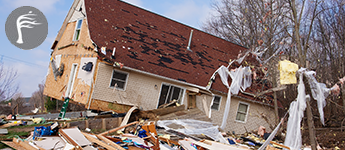|
Airline tickets. Rental cars. Suitcases. Bathing suits. These are the things that everyone remembers when they're going on vacation, but there's one more step that you should follow before you go anywhere: check the weather. Especially if you're traveling to areas that are prone to extreme weather events, you need to make sure you're not walking into a dangerous situation. This article contains tips on helping to mesh your travel plans with nature's plans for the weather.
The trouble with taking the weather into account while travelling is that often airline flights and hotels need to be booked months in advance, and no meteorologist is good enough to predict the weather more than two weeks ahead, at least not with any accuracy. All you can really do, then, is to keep your eye on a TV or internet weather reporting service in the weeks before your trip to make sure there's nothing brewing that can cause you trouble.
If there is a major weather event bearing down, you would be well advised to stay home. Transferring your reservations may come with a fee attached, but if you have travel insurance, weather cancellations are usually covered. Staying in your condo, apartment, or house won't be as fun as travelling, but travelling into an area experiencing extreme weather isn't just a pain for those trying to deal with it, it's dangerous. You could be killed.

One way to avoid the added expense of re-booking your hotel, flight, and car due to weather problems is to make sure you book during the mildest weather season. Hurricanes plague the Atlantic coast from June to November and the Pacific from May to November. Tornadoes are common throughout the central United States from April to June. Most wildfires occur in the late summer and the worst snowstorms arrive midwinter. Assess the risk carefully before you book.
While you are travelling, make sure you know which radio and TV stations to tune into so you can be sure to hear any weather warnings. Listen regularly. If you can't help but travel during extreme weather season, keep your hotel room stocked with enough food and supplies to last for 72 hours without power. Be ready to evacuate if the authorities require it, and create an escape or shelter plan for yourself and your guests. Make sure to register with your embassy so someone will know you are there if a rescue is needed.
| 